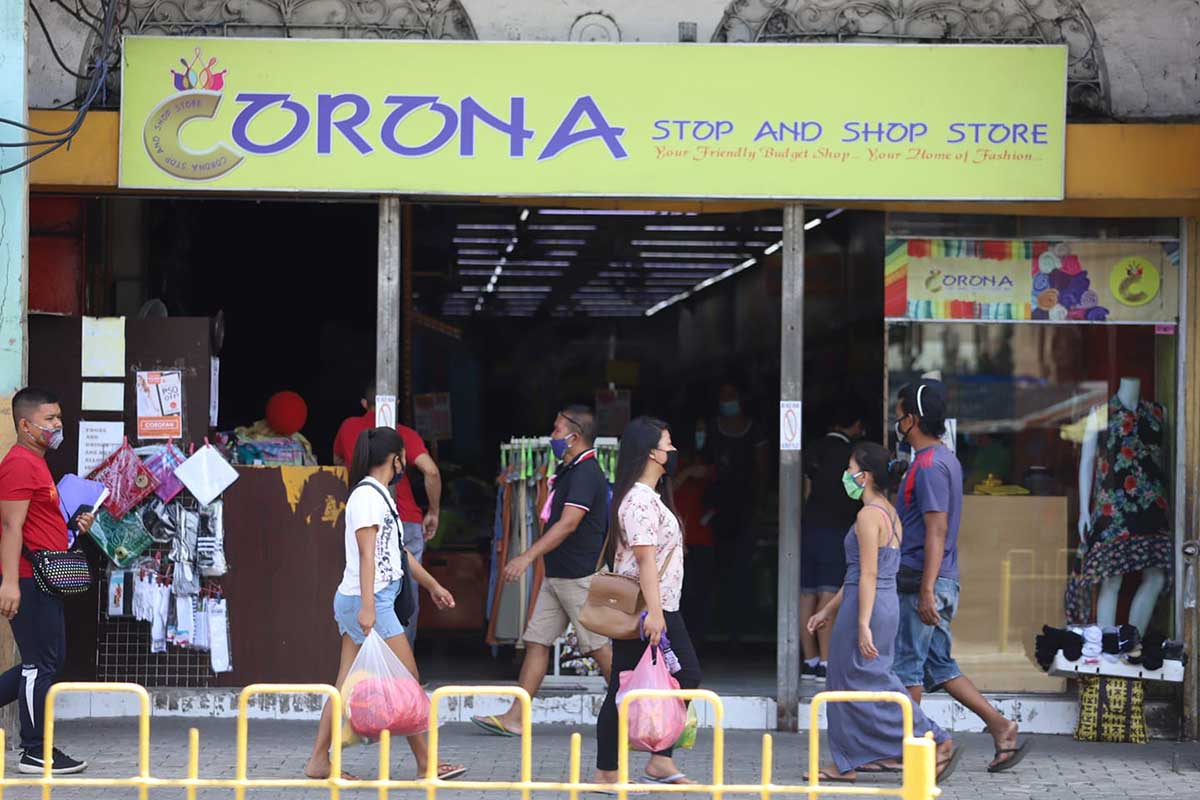
By Francis Allan L. Angelo
The Iloilo Business Club (IBC) pushed for the dismissal of the P750 wage hike for workers in Western Visayas sought by a labor group based in Bacolod City.
In a position paper filed with the Regional Tripartite Wage and Productivity Board (RTWPB) on April 2, 2022, the IBC labeled the wage hike petition of FISHTA Union of Employees for Reforms through Solidarity Actions (FUERSA-SUPER) as “unjust and unconscionable.”
The position paper claimed that the petitioners “completely disregarded the economic realities in the region, particularly in Iloilo City, wherein 98% of the businesses operating therein are SMEs (Small and Medium Enterprises), which were severely hit by the COVID-19 pandemic and the current fuel crisis, among others.”
If granted, FUERSA-SUPER’s petition will mean wage hikes ranging from P355 to P440 which is almost 90 to 142 percent increase from the current minimum wage rate in Region 6.
The current wage rates in the region for Non-Agriculture, Industrial/Commercial businesses with more than 10 workers is P395 and P310 for those employing 10 or less workers. For the agriculture sector, the wage rate is P315.
The minimum wage rates were mandated by Wage Order 25, which already lapsed in November 2020.
The IBC said that if P750 minimum wage is passed, it “will cripple, if not decimate, the operations of struggling local businesses in Iloilo City and the rest of the region.”
It will also “hinder efforts to bounce back from the pandemic, thereby incapacitating them from fully servicing the needs of the public and creating more jobs.”
With Iloilo City placed under COVID-19 Alert Level 1 only on March 10, 2022, the IBC said “local businesses at this point are just beginning to operate in full capacity and are yet to recoup the heavy losses they have incurred during the peak of the pandemic.”
The club cited latest data from the Iloilo City Local Economic Development and Investment Promotions (LEDIP) office, indicating that 12,287 businesses have renewed their business permits in 2022, lower than the 16,180 businesses that either secured business permits or renewed the same in 2021.
Also, 979 have closed shop for various reasons, it added.
“Our various members have also expressed their opposition to the said petition as this has completely disregarded the present difficulties of their industries, such as in wholesale and retail dealerships, construction, manufacturing, tourism, hotels and restaurants and fisheries.”
Apart from the effects of the COVID-19 pandemic, businesses are also grappling with the series of fuel price hikes which was triggered by the surge in global oil prices due to the Ukraine conflict.
Also, most of these industries are labor intensive “so any movement of the minimum wage will have repercussions on their operations.”
If the P750 minimum wage hike is approved, businesses might scale back their operations, reduce manpower or raise the prices on basic goods and commodities, “which affects not only the businesses and employees but the public as this might inevitably lead to a higher inflation rate.”
The IBC cited National Economic and Development Authority (NEDA) Sec. Karl Chua as saying that a “higher inflation rate is a tax on all” as it leads to higher interest rates and higher prices of goods and services.
Chua explained that a P39 increase (6 percent) in the minimum wage on top of the current rate of P537 shall lead to higher inflation rate by 1 percent in the National Capital Region (NCR).
“As applied in Region VI, in the event that the aforementioned higher minimum wage rates will be approved, these would lead to an even higher inflation rate than the current projections by NEDA and the Bangko Sentral ng Pilipinas (BSP) which we fear would translate to an increase in the prices of the basic goods and commodities,” the club added.
Latest NEDA data indicated that the inflation rate for all items in February 2022 was at 3.3 percent, a decrease from 4.6 percent in January. In March, inflation was at a faster 4 percent rate.
While it asked to hold any increase in wages, IBC said it will agree to a 3 percent increase on the current minimum wages.
The counter proposal is based on IBC’s computation “which takes into account the best government data available along with the realities on the ground.”
“In particular, we have considered the most recent inflation rate during this quarter, the price movement of basic goods and services, the recent development in fuel prices and the average amount of previous minimum wage adjustments in the last five years,” it added.
IBC said it takes exception to the factual allegations presented by the petitioner, which, although based on government data, “must not be taken out of context and must be grounded on the current situation in the region.”
“The petitioner presented its computation of P8,532.00 per month on the basis of an individual’s minimum wage of P395.00 and an average number of 21.6 working days in a month. We point out that this computation is based only on a sole-income household wherein a single individual supports the whole family’s needs and expenses. The petitioner has completely disregarded the existence of dual-income households or families with two working members.”
IBC also said that the petitioner disregarded the reality that most industries require six working days per week which translates to 24 days of work per month and not 21.6.
“Thus, their assumption that the current minimum wage is way below the income poverty threshold is unfounded since in our estimate, given a dual-income household with two minimum wage earners of P390.00, and 24 days of work, the gross monthly income may average to Php18,960.00.
In their petition filed on February 24, 2022, FUERSA-Super cited data from the Philippine Statistics Authority (PSA) indicating that the updated income poverty threshold using the 2021 Family Income and Expenditure Survey (FIES) is pegged at P13,519.16 in the first semester of 2021.
This translates to P2,253.19 per month per individual, or P11,265.96 per month per family of five.
“For the region, the highest minimum wage is at P395, which translates to P8,532.00 per month given an average of 21.6 working days in a month. This means that the minimum wage is no longer adequate to cross even a family of five with a single breadwinner across the poverty line,” the labor group said.
FUERSA-Super also noted that since 2012, the labor productivity in the region, defined as the Gross Regional Domestic Product (GRDP) divided by the number of people employed in the region has grown by 103.31%.
“Meanwhile, the highest minimum wage in the region has only grown by 42.60% during the same period (from December 2012). If minimum wages grew with the growth in productivity from 2012 onwards, then the minimum wage in the region should have been P563.17.”
The petitioner added that the accumulated difference between wages had it grown together with productivity and actual minimum wages amounts to P719.57.
“This means that the minimum wage from hereon must be adjusted to compensate for the foregone consumption of workers in the region, on top of closing the current gap between productivity and wages.”
As of July 2020, the petitioner claimed that the number of the employed earning minimum wage and below in the region is at 950,803. The total wage they receive – which represents their total purchasing power – amounts to P260.058.732 in a single day.
“If their minimum wage increases to P750, then the total wage rises to P713,102,250, an increase of P453,043,518 to the total purchasing power of the region per day. Per year, this amounts to P117,128,879,865.60. This will be a huge boost for new businesses.”
FUERSA-Super also cited a survey by the National Economic and Development Authority (NEDA indicating that a Filipino family of four will need to have a gross monthly income of P120,000 to live a “simple, comfortable life.”
Using this survey, the current highest minimum wage in the Region should accumulate an increase of P111,468.00 by the year 2040.
The first hearing on the wage hike petition will be held at Nature’s Village Resort in Talisay City, Negros Occidental on April 8, 2022, according to Department of Labor and Employment Regional Director Sixto Rodriguez, who also chairs RTWPB-6.
The next public hearing will be held April 11, 9 a.m., at Hotel Del Rio in Iloilo City for stakeholders from Iloilo City, Iloilo Province, Guimaras, Capiz and Antique.
It will be followed by the public hearing on domestic workers’ wages at 1:30 p.m. at the same venue.
The third consultation will be conducted on April 12, 1:30 p.m., at Marzon Hotel in Kalibo, Aklan for Capiz and Aklan stakeholders.






















